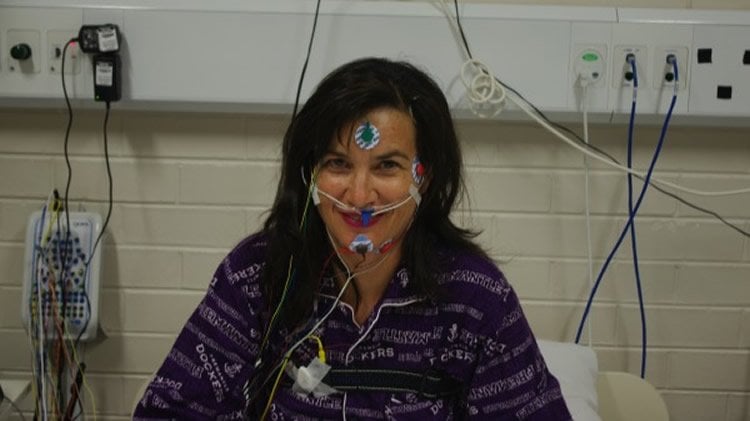Summary: A new study will assess people to find out whether their sleep disorders are capable of being passed on to their children.
Source: Science Network Western Australia.
The sleeping habits of more than 1,000 adult West Australians are to be assessed to see if their sleep disorders are capable of being passed on to their children.
The research will provide comprehensive data on the sleep patterns of adults aged 45 to 75 years old and investigate the most common disorders such as insomnia, sleep apnoea and ‘restless leg’ syndrome.
The unique research is the latest phase of the ongoing Raine Study which started in 1989 in Perth and has been tracking the health and development of more than 2,000 children from birth to adulthood.
In the past few years, about 1,000 of the young adults in the study took part in a sleep assessment when aged about 22 years old.
Now it’s their parents’ turn.
“The purpose of doing the parents is to see if there’s a genetic link and to establish the prevalence in that adult age range, because it’s a huge issue,” Raine Study manager Jenny Mountain says.
The researchers have invited parents to spend a night in one of several specially designed bedrooms at the UWA Centre for Sleep Science where their sleep will be monitored.
“Basically what we do is put a sensor on your head, with electronic leads that trace the brain waves while sleeping,” Ms Mountain says.

“And there are also ones that also trace your eye movements, breathing, oxygen saturation, and leg movements.
“Every 15 minutes of their sleep will be analysed by a sleep scientist, because your brain patterns change as you go through the various stages of sleep.”
Sleep disorders are common across Australia and cost industry, the health system and the wider community an estimated $10 billion a year.
And they can have serious results: insomnia has been associated with depression, workplace accidents and absenteeism.
Meanwhile sleep apnoea has been implicated in vascular diseases and motor vehicle accidents.
Yet many people don’t realise they have a sleeping problem.
“The majority of sleep disorders are undiagnosed,” Ms Mountain says.
As well as having their sleep patterns monitored, the parents will also undergo several related tests looking at their weight, body measurements, scans of body composition and bone density and lung function.
The sleep assessments will be carried out over 2016-17 with the results available in coming years.
The Raine Study is one of the world’s largest pregnancy cohort studies, with more than 150 researchers worldwide already utilising its research.
Tony Malkovic is one of the parents invited to take part in the sleep study.
Source: Tony Malkovic – Science Network Western Australia
Image Source: This NeuroscienceNews.com image is credited to UWA.
[cbtabs][cbtab title=”MLA”]Science Network Western Australia. “Do Parent’s Sleep Problems Get Passed Down to Their Kids?.” NeuroscienceNews. NeuroscienceNews, 8 June 2016.
<https://neurosciencenews.com/sleep-parents-children-4409/>.[/cbtab][cbtab title=”APA”]Science Network Western Australia. (2016, June 8). Do Parent’s Sleep Problems Get Passed Down to Their Kids?. NeuroscienceNews. Retrieved June 8, 2016 from https://neurosciencenews.com/sleep-parents-children-4409/[/cbtab][cbtab title=”Chicago”]Science Network Western Australia. “Do Parent’s Sleep Problems Get Passed Down to Their Kids?.” https://neurosciencenews.com/sleep-parents-children-4409/ (accessed June 8, 2016).[/cbtab][/cbtabs]






